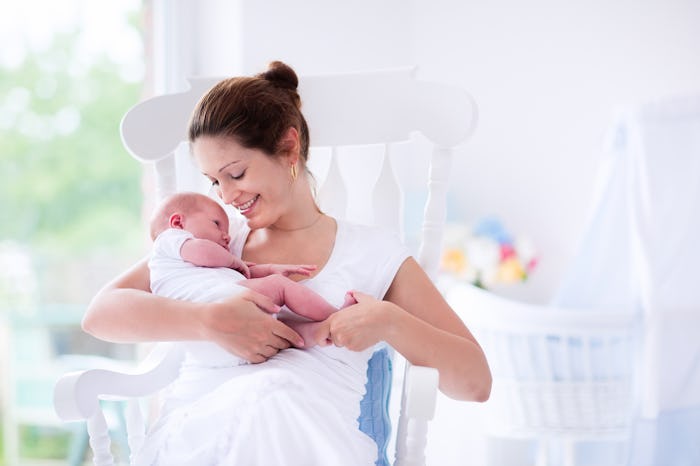Life

Here's What Happens To Your Milk If You Don't Breastfeed, According To Experts
If you're like me, there's a lot you didn't know about your own body before you became pregnant and delivered a child. Pregnancy, labor and delivery, and breastfeeding are all fascinating things when you take a closer look, and there is plenty you still may not know even after going through all of it. Like, what happens to your milk if you don't breastfeed? Whether you're choosing not to nurse, or you're just curious, it's cool to learn all the little awesome aspects of your body.
For women who decide not to breastfeed, milk supply will decrease its production to zero very rapidly following delivery, says Dr. Lakeisha Richardson, board-certified OB-GYN, to Romper. "Most women will experience breast engorgement and milk let-down two to three days after delivery, and many women will leak during those first few days, as well," she says. But, if you're not nursing or pumping, your supply will decline in less than seven days.
Because breast milk is produced by your body on a supply and demand type schedule, Richardson adds, lack of direct breastfeeding, pumping, or additional breast stimulation will help your milk production to go down. "Women who don't want to breastfeed usually wear a breast binder or tight-fitting bra to help decrease engorgement, too."
As for where the milk goes if you choose not to nurse, there's a simple answer. According to Leigh Ann O'Connor, International Board Certified Lactation Consultant (IBCLC), "When a person opts to not breastfeed or pump milk, the breasts become engorged with milk, and this sends a signal to the body to stop making milk and eventually production ceases. The milk is then absorbed into the body." This process isn't always simple, she tells Romper. Some people experience severe pain, and many get mastitis (a breast infection), clogged ducts, and at worst, an abscess.
If you're choosing not to nurse, or would like to wean, talk to your doctor about the best and safest way to do this is. Anything that can keep you from being ill and in pain while trying to take care of a newborn is welcomed advice.